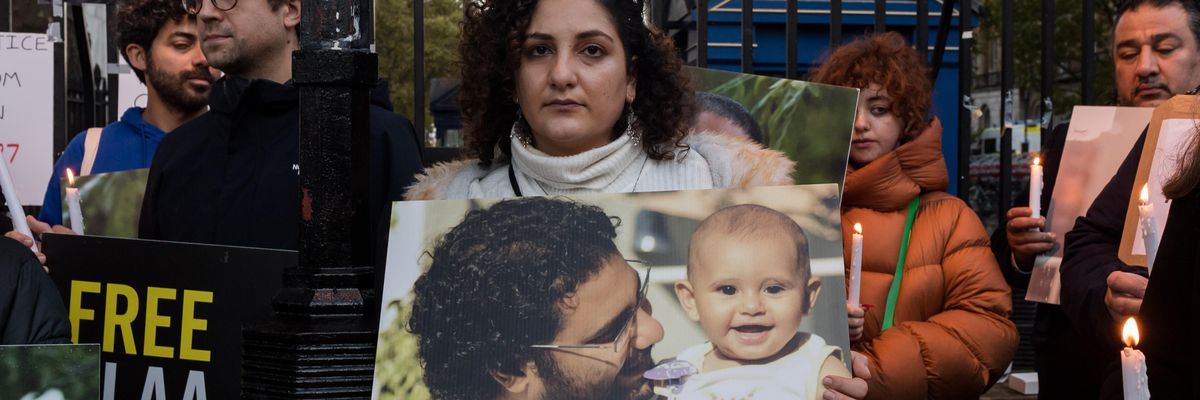Friday was the birthday of Alaa Abd El Fattah, a prominent Egyptian-British coder, blogger, activist, and one of the most high-profile political prisoners in the entire Arab world. It was the tenth birthday that he will spend in prison. But we are newly optimistic for his release: This week, Alaa's family and International Counsel acting on his behalf filed an urgent appeal with the United Nations requesting urgent action over his continuing and unjust imprisonment in Egypt.
The petition asks the United Nations Working Group on Arbitrary Detention (UNGWAD), which meets this week in Geneva, to consider Alaa’s case under its Urgent Action procedure. We hope that the Working Group will conclude that Alaa’s detention is arbitrary and contrary to international law, and find that the appropriate remedy is a recommendation for Alaa’s immediate release, as the petition requests.
"This latest appeal comes after Alaa spent more than half of 2022 on a hunger strike in protest of his treatment in prison."
EFF submitted a petition the UNGWAD in 2014, along with the Media Legal Defence Initiative. The Working Group issued an opinion that Alaa’s detention was arbitrary and called for his release. In 2016, the UNWGAD declared Alaa's detention (and the law under which he was arrested) a violation of international law, and called for his release.
This latest appeal comes after Alaa spent more than half of 2022 on a hunger strike in protest of his treatment in prison, which he started on the first day of Ramadan. A few days after the strike began, on April 11, Alaa’s family announced that he had become a British citizen through his mother. There was hope last year, following a groundswell of protests that began in the summer and extended to the COP27 conference, that the UK foreign secretary could secure his release, but so far, this has not happened. Alaa's hunger strike did result in improved prison conditions and family visitation rights, but only after it prompted protests and fifteen Nobel Prize laureates demanded his release.
Though Alaa has spent much of the last decade imprisoned, his most recent sentence was for sharing a Facebook post about human rights violations in prison. His unjust conviction for "spreading false news undermining national security" follows years of targeting by multiple Egyptian heads of state. His treatment is emblematic of the plight that many Egyptian activists now face. If you’d like to learn more, this website offers actions and information on ongoing campaign efforts.
Last year, we awarded Alaa an EFF Award for Democratic Reform Advocacy, in absentia. He has also received PEN Canada’s One Humanity Award. An anthology of his writing was recently translated into English by anonymous supporters and published in 2021 as You Have Not Yet Been Defeated. Alaa frequently writes about imprisonment and the fight for democracy, and below, we’ve excerpted a passage from “Half an Hour With Khaled,” written in December, 2011.
We rejoice at a wedding because it is a marriage. We grieve at a funeral because it is death. We love the newborn because he’s human and because he’s Egyptian. Our hearts break for the martyr because he’s human and because he’s Egyptian. We go to the square to discover that we love life outside it, and to discover that our love for life is resistance. We race towards the bullets because we love life, and we walk into prison because we love freedom.

